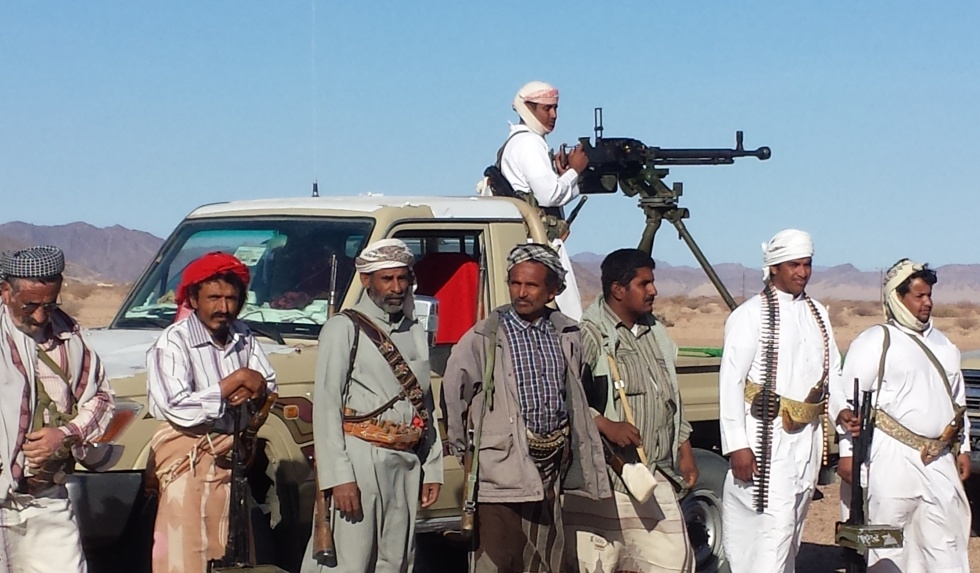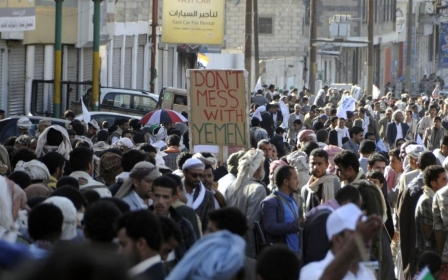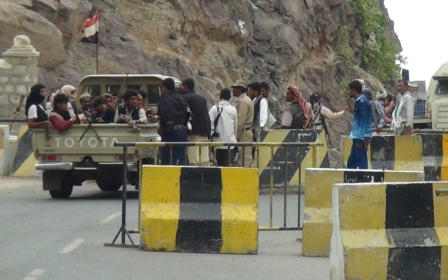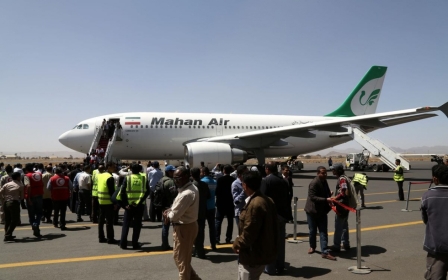Saudi Arabia to host Yemen talks at Hadi's request

The Gulf monarchies have agreed to a request by Yemen's beleaguered president to host talks in Riyadh aimed at pulling their impoverished neighbour out of crisis, the Saudi royal cabinet said.
President Abedrabbo Mansour Hadi, who has been based in Yemen's second city Aden since escaping the Houthi-controlled capital last month, made the request after failing to reach agreement with the militia and their backers on a venue inside Yemen.
UN-brokered reconciliations talks, which had been taking place in Sanaa, have broken down since Hadi's flight to Aden in the south.
The Western-backed president insists that talks can no longer be held in the capital while the Houthis and their supporters have threatened to boycott talks anywhere else.
"The secretariat general of the Gulf Cooperation Council is going to make the necessary arrangements" for the talks which Hadi requested in a message to Saudi Arabia's King Salman, the royal cabinet said.
It did not give a date for the talks.
Hadi proposed that the Riyadh meeting convene "all the Yemeni political parties anxious to preserve the security and stability of Yemen," said the statement carried by the official SPA news agency late on Sunday.
He underlined that the conference should reject "the coup d'etat" of the Houthi militia, who seized power in Sanaa on 6 February after overrunning the capital last September.
Several GCC states, led by Saudi Arabia, have moved their embassies to Aden after an exodus of foreign diplomats from Sanaa in February over security concerns.
Aden, however, has long been home to the southern separatist movement which has sought independence from Sanaa and wants to dissolve the 1990 unification deal.
The six Sunni-ruled Gulf states are deeply suspicious of the Shiite Houthis, fearing they will take Yemen into the orbit of regional rival Iran which is known to back the Houthis although the extent of their involvement has been hotly debated.
Yemen, a front line in the US war against al-Qaeda, has been gripped by unrest since long-time president Ali Abdullah Saleh stepped down in early 2012 after a bloody year-long uprising.
Saleh's General People's Congress party is widely accused of backing the Houthis and has also vowed to boycott any talks not held in Sanaa.
Clashes rock south
While the Houthis control much of northern Yemen they have faced fierce resistance from armed tribes south of the capital, with some tribes on occasion fighting in alliance with al-Qaeda.
Tribal sources told AFP that 22 militiamen were killed in fighting in al-Bayda province on Sunday night but the toll could not be independently verified.
Reports also emerged that the Houthis occupied the home of a Salafist leader in the province.
"The Houthis broke into my house in the al-Zaher district of al-Bayda and occupied it," Abdel-Wahab al-Homaiqani told Anadolu Agency, noting that the building had been vacant when the seizure occurred.
"This attack is part of the Houthis' blackmail campaign against anyone who opposes its coup [last September] against state institutions," he said.
Houthi leaders were not available to comment on the issue.
Further south, troops and paramilitaries loyal to Hadi clashed with al-Qaeda militants, who are strong in eastern parts of the country.
An attack by suspected al-Qaeda militants on an army position on the border between Abyan and Shabwa provinces killed four soldiers on Monday, a military official told AFP. The militants lost seven of their men before retreating to the east, a tribal source said.
The so-called Popular Committees, a group of tribal gunmen loyal to Hadi, said that they managed to flush out al-Qaeda militants and “liberate” the city after it fell into al-Qaeda hands early on Monday morning, with the group setting up its checkpoints throughout the town.
Al-Qaeda's branch in Yemen, meanwhile, said on Twitter that its militants had carried out a major assault on the army camp in al-Mahfad. The reports could not be independently verified.
In a separate incident unidentified militants on Monday gunned down a senior police officer in the central Yemeni province of Taiz, a security source told Anadolu.
No group has claimed responsibility for the attack as yet but in recent months, scores of security personnel have been killed in similar attacks, which authorities usually link to al-Qaeda.
New MEE newsletter: Jerusalem Dispatch
Sign up to get the latest insights and analysis on Israel-Palestine, alongside Turkey Unpacked and other MEE newsletters
Middle East Eye delivers independent and unrivalled coverage and analysis of the Middle East, North Africa and beyond. To learn more about republishing this content and the associated fees, please fill out this form. More about MEE can be found here.




